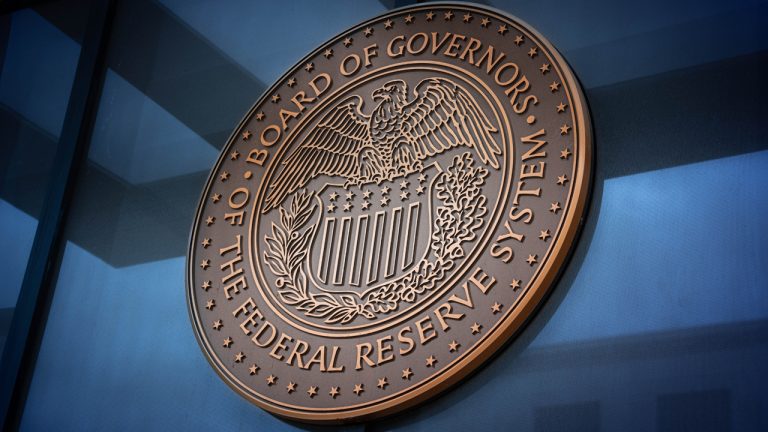
On Wednesday, following the market’s closure, major U.S. indices concluded the day unchanged, coming off a rise the previous day. This surge was influenced by the dovish remarks made on Tuesday by Federal Reserve Governor Christopher Waller. Observers of the market infer that Waller’s comments indicate a potential shift in the stance of the U.S. central bank, a notable deviation given his usually hawkish perspective. Concurrently, the Federal Reserve’s latest ‘Beige Book’ report presented a more troubling outlook than its predecessor, pointing to decelerated economic expansion and a rise in consumer credit defaults.
Waller’s Typical Hawkish Tone Turns Dovish
Two days prior, at the American Enterprise Institute, Christopher Waller of the Fed shared with participants that “inflation rates are moving along” largely as he had anticipated. Waller elaborated, pondering if inflation could stabilize around the 2% mark. He noted, “There are some factors favoring this outcome,” shedding light on the issue.
Emphasizing his growing assurance, Waller stated that he was “increasingly confident that policy is currently well positioned to slow the economy” in order to reduce the inflation rate to the targeted 2%.
Waller added:
I will be looking to see that confirmed in upcoming data releases. Before the next FOMC meeting, we will get data on PCE inflation and job openings, a job report, and [a] supply manager’s survey for November. CPI inflation will come out on December 12, the first day of the FOMC meeting.
‘Beige Book’ Shows Economic Slowdown; Critics Don’t Expect a ‘Soft Landing’
Following Waller’s address, U.S. equities experienced an upswing, yet the subsequent day brought the U.S. central bank’s release of its ‘Beige Book’ survey, revealing a blend of divergent trends within the U.S. economy. This report depicted oscillating retail sales alongside a deceleration in manufacturing activities. For example, retail and automobile sales indicated a change in consumer spending habits, whereas purchases of non-essential items and long-lasting products like furniture and appliances saw a downturn.
As per the ‘Beige Book,’ the U.S. manufacturing sector is facing a general decline in future prospects. This is coupled with a fall in the demand for both business and real estate loans. According to the Fed’s analysis, although consumer credit remains largely stable, a slight increase in consumer loan delinquencies was noted. The survey also points to early signs of financial strain in specific consumer groups. Moreover, the survey reveals a continuous decline in both commercial real estate and multi-family housing activities.
Waller and the ‘Beige Book’ offer a depiction of the current economic uncertainties, and although the Fed anticipates a “soft landing,” some critics are skeptical about this positive outcome. Robert Kiyosaki, the author of “Rich Dad Poor Dad,” recently expressed concerns about impending “hyperinflation” and criticized government leaders for their heightened “incompetence.”
Economist and proponent of gold, Peter Schiff, shared with his followers his belief that the economy is headed not towards a soft landing but towards a “crash & burn” scenario. Bill Holter, an expert in precious metals and a financial writer, recently remarked, “These central banks have completely blown up their balance sheet and have no ability to save anything.”
Holter added:
In short, confetti dollars are going to shut the credit markets down…Then, it’s game over because everything runs on credit.
What are your thoughts on this subject? Let us know what you think in the comments section below.
from Bitcoin News https://ift.tt/23QW5yF
https://ift.tt/0mIN7CF


0 Comments